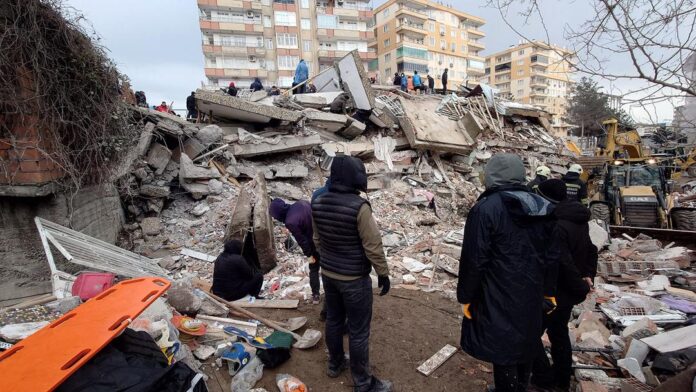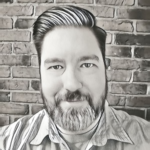As I write this, it’s been barely 72 hours since two large seismic events rocked the countries of Türkiye (Turkey) and Syria. The cataclysmic earthquakes that reached magnitudes of 7.8 and 7.6 sent shockwaves in every direction, the effects felt as far away as Greenland; however; the true devastation of the catastrophe radiates much further, and is impossible to measure.
Over 35,000 lives have officially been lost, but that number will climb as communities search for their loved ones among the rubble of the estimated 64,000 destroyed buildings in Türkiye alone. The massive quakes and numerous aftershocks have also damaged key infrastructure which has hampered efforts to provide aid and excavation equipment to key areas. The devastation is widespread, and search and rescue teams are too few and lack necessary heavy machinery. Adding to the crisis is the weather, as survivors struggle against freezing temperatures without adequate shelter, rightfully wary of lingering in any remaining buildings that may be structurally compromised. Rescue and aid efforts are in a race against time as hope dwindles by the hour.
In times of such unimaginable tragedy, it’s understandable to feel overwhelmed. Witnessing loss on any scale can evoke strong feelings like sorrow, fear, anger, and helplessness, and UFV provides services and support for those who need it. Dr. James Mandigo, acting president and vice-chancellor, issued a statement on Feb. 9 with links to resources available to students, and I encourage anyone who needs them to make use of them, and donate to relief efforts if they can.
I understand anyone’s instinct to avert their eyes from catastrophe — especially when our own insignificance is made so apparent. Truly, what can any of us do at a time like this, half a world away? I promise you — your attention matters. Grief is a truly universal human experience, and our ability to empathize with someone else’s suffering can be a radical force for good. History is full of horror and injustice, but change comes, and progress is made, when people refuse to look the other way.
University is an opportunity to better understand the world around us (including its hardships), to inform our choices, grant perspective, and invest us in the future. We are part of a global community, and elections can hinge on questions of globalism, foreign aid, immigration, and international cooperation. The role that Canada plays in the world is a direct result of our individual choices. Tomorrow’s tragedies are exacerbated, or mitigated, by what we do today.
There is no elixir to heal national trauma, but a unifying thread is the desire to simply be seen. Truth and reconciliation commissions around the world know this well: when our pain is recognized and felt by others — when the burden of grief is shared — we feel validated and connected by our common humanity.
Carrying wounds that will never fully heal, the road ahead for the people of Syria and Türkiye will be arduous as survivors mourn, and attempt to rebuild. The job for the rest of us starts here: try not to look away.
Long ago, when DeLoreans roamed the earth, Brad was born. In accordance with the times, he was raised in the wild every afternoon and weekend until dusk, never becoming so feral that he neglected to rewind his VHS rentals. His historical focus has assured him that civilization peaked with The Simpsons in the mid 90s. When not disappointing his parents, Brad spends his time with his dogs, regretting he didn’t learn typing in high school.



